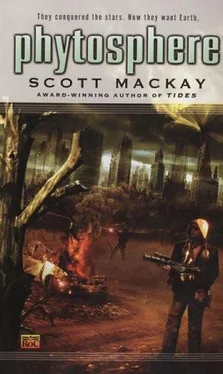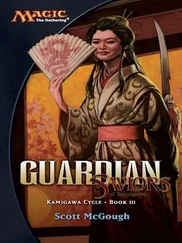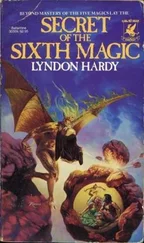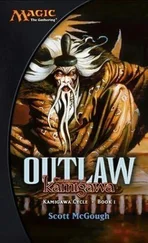He checked over the system of the first and got three red lights. On the backup pod, he got only one red light, life support, but as his CAPS was capable of life support, this wasn’t an endgame obstacle. He pressed the latch buttons and the gull-wing hatch lifted. He moved with an air of unreality, and with a distant sadness clutching at his throat. He slotted himself into the middle launch bed, while those on either side remained empty.
He had a moment of doubt. Would Ian screw up, as he had so often in the past? He touched the necessary spots on the screen in front of him, the gull-wing hatch sank, and the launch bed braces closed over him. He remembered the time Ian had totaled his car, and how he and Glenda had then had to buy a much crappier one, the relic they were driving now. Would Ian, in the final desperate seconds, lose his judgment, as he had lost it so often in the past? Or would he simply chicken out?
He radioed control. “Ira, I’m ready to eject.” Then he let control know what Ian was doing. Ira ranted because Ira was the orchestra conductor, and someone had played a wrong note, but Gerry didn’t want to listen to it, so he switched communications off. The silence was sublime. It memorialized Ian’s approaching death. He brought his gloved hand up to the screen. With a few flicks of his finger he had his telemetry readouts. The timer now told him Ian had only three minutes to make a course correction.
All Gerry could now do was watch the timer roll down, the digital numbers, counting back in bright amber. When the timer reached the two-minute mark, the numbers turned red. Red, the color of the eleventh hour—this whimsical thought passed through his mind, even as his body tightened, went cold, and nausea knocked at the back of his throat. A big loser: these words from Glenda, describing Ian, when she had reached her wits’ end about his drinking. And yes, there was something of the loser in Ian.
A man with a lot of bravado, confidence, and damn-the-torpedoes attitude, but one who had a history of choking at the last second. The time was now down to a minute and twenty-five seconds. A man who ultimately scored the touchdown, but missed the field goal. The numbers rolled relentlessly by and Gerry had the sense that he was in numerical free fall. Also a man who was desperate to make amends. Maybe the pressure of his own remorse would be too much for Ian.
“Think of Stephanie, Ian.”
And in that moment, he knew that’s exactly what Ian was doing. The digits seemed to slow their free fall, as if they had the presentiment of great change and, as the counter timed down to twenty-two seconds, the PCV began to shake as if in an earthquake, sudden g-force pushed him flat into his launch bed, and his stomach got the same feeling it got whenever he was going down in a fast elevator. He checked his screen and saw that the diagrammatic representation of the Moon, the Earth, and the asteroid had shifted, and that Gaspra was now establishing a tight and degrading orbit around the Moon. He watched the angle-of-entry numbers tip toward the region of effectiveness. On the screen, Gaspra looked like a big bee getting ready to sting the Moon, and was approaching its surface at an ever-accelerating rate. He felt a curious moment of elation, because this really looked as if it was going to work. Then again, if the Martians could shift moonlets around to form the PDT, why couldn’t he shift the Moon to save the Earth? What was so difficult about it? It was nothing but operating heavy equipment on a gargantuan scale.
The angle of entry eased toward the target zone. Yet the vindication he felt for finally struggling out of his underdog position and coming up with a procedure that looked as if it was going to do the trick was tempered by a knowledge of just how close they had come. The rock screamed toward the Moon at a phenomenal rate of speed. Angle of entry reached deeper into the region of effectiveness, and within the next few seconds, at thirty-seven degrees, Gerry launched.
The survival pod shot upward through the tube and in seconds he was well above the PCV and watching it recede. Ten seconds after that it was like he was looking down at a mountain, because he saw the sloping curvature of the asteroid, and the curves looked like precipices. Then he got so far up that Gaspra became the big stone that it was, with all its tiny craters—a scarred old warrior that was about to be obliterated in its final battle.
The surface of the Moon was a blur of speed below, its craters shadowy blips. As his vehicle rose, the asteroid sank. His pod’s movement soon carried him beyond the asteroid’s path. He was on his stomach now, his head down as if he was going to dive to the Moon, and from this upside-down position he watched the asteroid get lower and lower, rolling end over end like a badly thrown football, until finally…it struck the Moon’s surface.
By this time, his readouts told him he was nearly three hundred miles away, with the curve of the Moon fully visible, but it was as though the blast happened right next door. The asteroid threw up a small ring of debris, but the debris was moving quickly, and every piece of blasted particulate took on the same shape, an elongated, blurry lozenge. Outside this first small ring, a second ring developed. Then a third ring. Then a fourth. Each ring reached higher and higher into the dark vacuum above the Moon, until finally the rings were so gargantuan, tall, and violent that debris started flying around him and he grew concerned that he might be hit. Take a baseball, stick an upside-down thimble on its side, and that was the proportion of the blast size compared to the Moon. The ground surrounding the crater, covering an area of five hundred square miles, quivered like a bowl of Jell-O. He watched in horror and fascination.
He took a moment to think of his friend—but then had his own concerns to consider. The survival pod carried him up and over the rim of the Moon so that the asteroid strike disappeared behind him. His braking thrusters fired and the pod sank. The surface of the Moon came up fast. In minutes he no longer saw its curvature. Then it was as though he was looking out a jet window from thirty thousand feet. And in many ways it was like coming in for a landing in a jet, with the bleak, gray-brown landforms growing more and more distinct every minute.
When he was a thousand feet up, the pod arced into a vertical position and sank thruster-first toward the surface. As the pod reached the thirty-foot mark, and slowed its descent to two miles an hour, he got a red light on the landing gear—it wouldn’t deploy. When the pod finally reached the surface, it fell over like a big tree.
Luck.
He and Glenda had talked about it often.
Usually, when a piece of bread and peanut butter fell to the floor, it always fell peanut butter side down.
In fact, that was the story of his life.
But it seemed his luck had changed. With no radios working and everbody hunkered down, his death would have been certain if the pod had fallen on its hatch. The weight of the pod on top of it would have stopped it from opening and he would have been trapped until his life support ran out. But the pod had fallen hatch up. He keyed the necessary commands. The gull-wing unit lifted noiselessly.
And Gerry climbed out onto the surface of a Moon that was moving toward the Earth exactly according to his own equations.
Driven by strong winds, the fire raged all night. It first consumed the trees around the cave, then spread in all directions according to the wayward will of the fickle winds. Smoke came into the cave, finally forcing Glenda, Fernandes, and the kids into the second cavern. The fire’s roar was like several trains rumbling by the foot of the hill. The oxygen got thin, as if the fire was consuming every last atom.
Читать дальше












